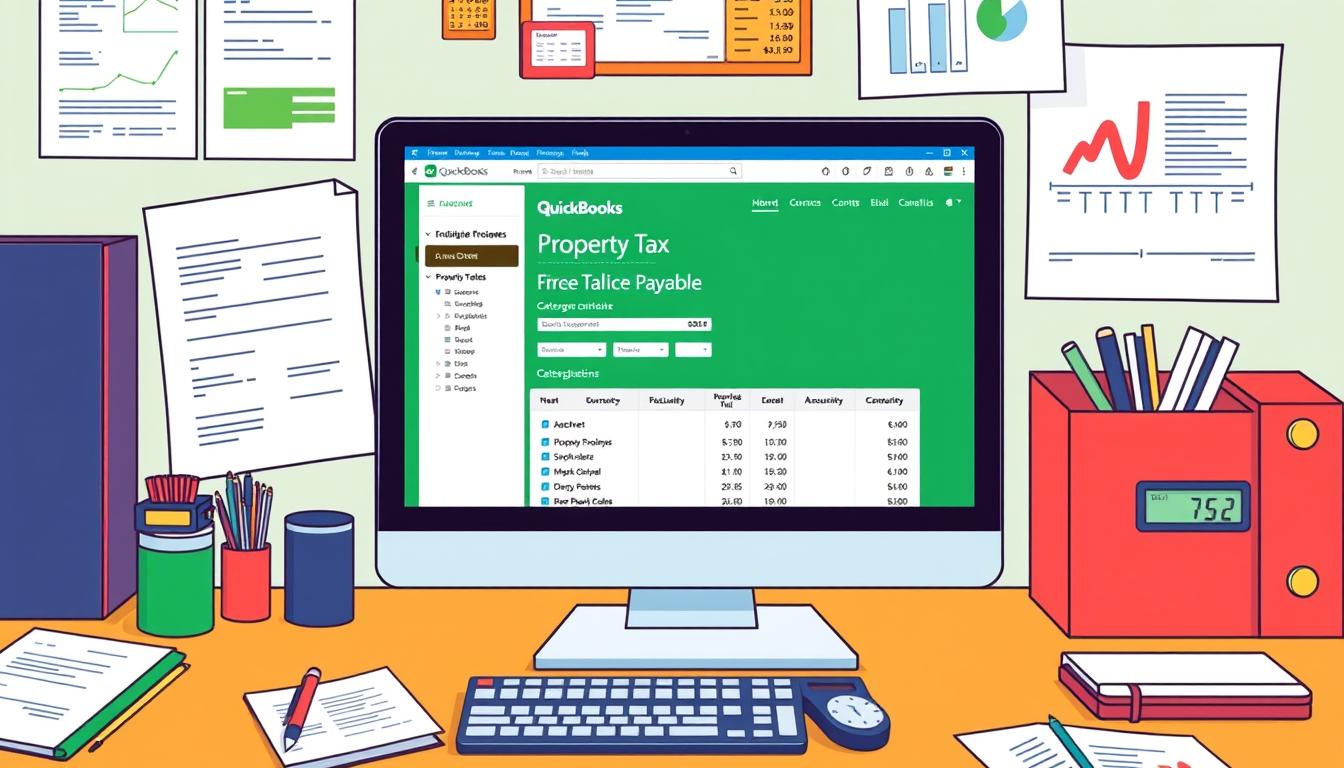
What tool could i use to replace quickbooks

Table of Contents
In today’s fast-paced business world, many companies are looking for QuickBooks alternatives. They want to make their accounting easier and better. QuickBooks has been a top choice for a long time, but businesses need to check out other accounting software options.
Things like how well the software works, its cost, and how easy it is to use are important. These factors are why companies are looking for tools that can replace QuickBooks. They want to manage their finances more smoothly.
Key Takeaways
- Exploring alternatives can optimize financial management.
- QuickBooks may not meet all business needs.
- Cost-effectiveness is a major reason for seeking replacements.
- User experience varies across different accounting software.
- Understanding individual business requirements is crucial.
Understanding the Need for QuickBooks Alternatives
Many businesses look for reasons to switch from QuickBooks because of challenges they face. They often get frustrated with features that don’t meet their accounting software needs.
Some business owners also find the platform limits their financial management. They struggle with reporting, integrations, and usability. If a tool can’t keep up with their needs, it can make their finances harder to manage.
Another big issue is the cost of QuickBooks. Many companies want alternatives that are more affordable. They look for options that fit their business needs without breaking the bank.
In today’s fast-changing financial world, it’s key to use software that meets your accounting software needs. Finding the right alternative can boost productivity and make workflows smoother. It’s important for businesses to carefully consider their options.
| Challenges with QuickBooks | Potential Alternatives |
|---|---|
| User frustrations with features | Xero, FreshBooks |
| Platform limitations | Sage, Wave |
| High subscription costs | Zoho Books, QuickFile |
| Changing financial landscapes | FreeAgent, Kashoo |
Key Features to Look for in Accounting Software
When looking at accounting software, it’s key to focus on certain accounting software features. These features can greatly improve how you manage your finances. The tools you need should meet your business’s specific needs.
- Ease of Use: The software should be easy to use. It should be simple for everyone, no matter their skill level, to use without needing a lot of training.
- Scalability: As your business grows, so should your software. Look for systems that can grow with you, adapting to your changing needs.
- Automation Capabilities: Automation helps reduce errors and saves time. Choose solutions that automate tasks like invoicing, payroll, and bank reconciliations.
- Reporting Options: Good reporting tools give you quick insights into your finances. You’ll need detailed reports on profits, expenses, and cash flow to make smart decisions.
- User Support: Having reliable customer support is important. Look for software with easy-to-use training resources and a responsive help desk.
Doing a detailed software comparison based on these key features helps you pick the right accounting software. By focusing on these elements, you can greatly improve your accounting processes.
Popular Alternatives to QuickBooks
Looking for alternatives to QuickBooks? Xero and FreshBooks are top picks. They each have special features for different business needs.
Xero: A User-Friendly Solution
Xero is known for its easy-to-use interface and strong features. It’s great for medium to large businesses. Key features include:
- Real-time collaboration with team members and accountants.
- Comprehensive invoicing tools for efficient billing processes.
- Detailed reporting capabilities that help in tracking financial health.
- Integration with numerous apps to enhance functionality.
Businesses love Xero for making accounting easier and growing with them.
FreshBooks: Ideal for Small Businesses
FreshBooks is perfect for freelancers and small businesses. It’s simple and effective. Some key advantages are:
- User-friendly dashboard that streamlines financial management.
- Time tracking features for accurate billing.
- Recurring billing options that automate payment processes.
- Excellent customer support that assists users when needed.
FreshBooks is a top choice for a simple accounting solution without complex features.
quickbooks: Why Some Users Consider Switching
Many businesses look at other accounting software when they face problems with QuickBooks. They talk about the challenges they face, which makes them think about switching. We will look at common issues with QuickBooks and why users might want to change.
Limitations of QuickBooks
Users often point out several QuickBooks limitations that cause trouble. The software can be too rigid and doesn’t always fit their business needs. This makes it hard for companies to customize it for their work.
Also, the customer support is not always up to par. Businesses need quick help with their accounting questions. But, many feel QuickBooks doesn’t provide good support fast enough. Problems with integrating QuickBooks with other software tools are common too. Users struggle to connect QuickBooks with important apps like inventory management or CRM systems.
Cost Considerations
Looking at the QuickBooks costs shows another reason to switch. The subscription fees can get expensive, especially for features that businesses need. Unexpected costs, like fees for extra users or premium support, can also hurt the budget. This makes business owners think about finding cheaper options that still have the features they need.
Assessing Your Business Needs
Choosing the right accounting software is all about knowing your business inside out. Every business is different, and finding the right fit is key. Before you make a choice, think about these important factors:
- Transaction Volume: Figure out how many transactions your business does every day, month, and year. This helps you pick software that can handle your workload.
- Scalability: Look for software that can grow with your business. If you think you’ll need more features or handle more transactions later, choose a custom solution.
- Industry-Specific Needs: Some industries have special rules. Check if the software meets your industry’s needs and follows the necessary regulations.
- User Experience: A software that’s easy to use can save a lot of time. Make sure it fits your team’s skills and needs.
By carefully looking at your business needs before choosing, you’ll find a solution that meets your current needs and grows with you.
| Factor | Consideration | Importance |
|---|---|---|
| Transaction Volume | Estimate daily, monthly, and annual transactions. | High |
| Scalability | Evaluate the potential for business growth. | High |
| Industry-Specific Features | Determine if the software caters to your sector. | Medium |
| User Experience | Analyze the software’s interface and accessibility. | Medium |
User-Friendly Features in Alternative Tools
Choosing the right accounting software is more than just basic features. How easy it is to use is key. When looking for alternatives to QuickBooks, focus on tools that are easy to use. Look for features like software integrations and mobile access, which make using the software better.
Integrations with Other Software
Being able to connect with other software tools is crucial. These connections help businesses work smoothly with their accounting and other apps. When searching for easy-to-use accounting tools, check for these:
- Works well with popular apps like Salesforce, PayPal, and Shopify
- APIs for custom integrations based on your business needs
- Easy data sharing to cut down on manual work
Good software integrations help avoid mistakes and save time. Many QuickBooks alternatives offer these features, making financial management easier.
Mobile Access and Usability
Today, businesses need to manage finances on the go. Being able to check financial data on phones or tablets is key. Look for these in accounting tools:
- Easy-to-use mobile apps with the same features as desktop versions
- Apps available for both iOS and Android
- Options for secure transactions and invoicing from anywhere
Mobile-friendly accounting lets employees manage finances anywhere. This flexibility is great for businesses that are always on the move.
| Feature | Benefit |
|---|---|
| Software Integrations | Streamlines processes and reduces manual data entry |
| Mobile Usability | Offers real-time access to financial data anywhere |
| User-Friendly Interface | Enhances overall user experience and productivity |
Cost Comparison: QuickBooks vs Alternatives
Choosing the right accounting software is crucial for businesses. A detailed pricing comparison can help find the best value. It’s important to look at subscription models and any extra costs to understand the total cost of QuickBooks and its competitors.
Subscription Models
It’s key to compare the subscription models of different accounting software. Look at the pricing tiers and what each includes. Here’s a comparison of QuickBooks with some top alternatives:
| Software | Basic Plan Cost | Standard Features | Premium Features |
|---|---|---|---|
| QuickBooks | $25/month | Invoicing, Expense Tracking | Inventory Management, Advanced Reporting |
| Xero | $12/month | Bank Reconciliation, Invoicing | Project Tracking, Multi-Currency Support |
| FreshBooks | $15/month | Time Tracking, Recurring Billing | Advanced Reporting, Client Portals |
Hidden Fees and Costs
Businesses should also watch out for hidden fees in QuickBooks. These might include:
- Transaction fees for credit card payments
- Charges for payroll services
- Fees for extra users
- Costs for integrating with third-party apps
Knowing these costs helps businesses choose software that fits their needs and budget.
Conclusion
Choosing the right accounting software is key for good business financial management. We’ve seen that knowing your specific needs is the first step. With many QuickBooks alternatives out there, businesses must compare each one to see which fits best.
Choosing software that matches your business goals can really boost your productivity and help you grow. This article has shown how important it is to look at both what the software can do and its cost. By carefully checking out these options, your business can become more efficient and successful in managing its finances.
When making your decision, remember the importance of choosing the right accounting tool. It should meet your current needs and be ready for future challenges. With the right information and careful thought, you can pick a solution that strengthens your financial management strategy.
FAQ
What are some of the best alternatives to QuickBooks?
Top alternatives to QuickBooks include Xero and FreshBooks. Xero is known for its easy-to-use interface and growth potential. FreshBooks is great for small businesses and freelancers because it’s simple and efficient.
Why do businesses consider switching from QuickBooks?
Businesses might switch due to feature limitations or high costs. They might also get frustrated with QuickBooks. This leads them to look for better accounting software options.
What key features should I look for in accounting software?
Look for ease of use and automation in accounting software. Also, check for reporting options and user support. These features are key for managing finances well.
How can I assess my specific business accounting needs?
Think about your business’s unique needs, like operations and growth potential. This custom accounting solutions approach helps find software that fits your business’s future needs.
What are the typical subscription models for accounting software?
Accounting software often has monthly or annual plans. There are also tiered pricing and pay-as-you-go options. It’s important to compare pricing to choose wisely.
Are there hidden fees associated with QuickBooks?
Yes, QuickBooks might have hidden fees. These can include extra charges for users, features, or support. This can make users think twice about QuickBooks costs compared to other options.
What are the integration capabilities of popular accounting software?
Popular accounting software often integrates well with other tools. This improves workflow and productivity. It’s important to pick software that fits with your current technology.
Is mobile access important for accounting software?
Yes, mobile access is key. Good accounting software lets you manage finances anywhere. This keeps your business running smoothly, no matter where you are.
- Tags: intuit quickbooks, intuit quickbooks login, intuit quickbooks online, quickbook, quickbooks, quickbooks accounting software, quickbooks customer service, quickbooks customer service number, quickbooks desktop, quickbooks desktop 2024, quickbooks log in, quickbooks login, quickbooks login online, quickbooks online, quickbooks online accountant, quickbooks online accounting, quickbooks online customer service, quickbooks online login, quickbooks online pricing, quickbooks payroll, quickbooks self employed, quickbooks software, quickbooks support phone number, quickbooks time, quickbooks time login, quickbooks workforce
Top Products
- QuickBooks Desktop Pro 2024 US Version
- QuickBooks Desktop Pro 2023 US Version
- QuickBooks Desktop Pro 2022 US Version
- QuickBooks Desktop Premier 2024 US Version
- QuickBooks Desktop Premier 2023 US Version
- QuickBooks Desktop Premier 2022 US Version
- QuickBooks Desktop Accountant 2024 US Version
- QuickBooks Desktop Accountant 2023 US Version
- QuickBooks Desktop Enterprise 2024 US Version
- QuickBooks Desktop Enterprise 2023 US Version
- QuickBooks for Mac 2024
- QuickBooks for Mac 2023
Popular Posts

How to categorize property tax payable in quickbooks online
Knowing how to categorize property tax payable in QuickBooks Online is key for keeping your financial records right. Property tax payable is the amount your business owes in property taxes. It can greatly affect your financial health. By learning to categorize property tax well, businesses can make sure their financial statements show their true obligations.
This knowledge is crucial as we dive into the steps and best practices for handling property tax payable in QuickBooks Online.
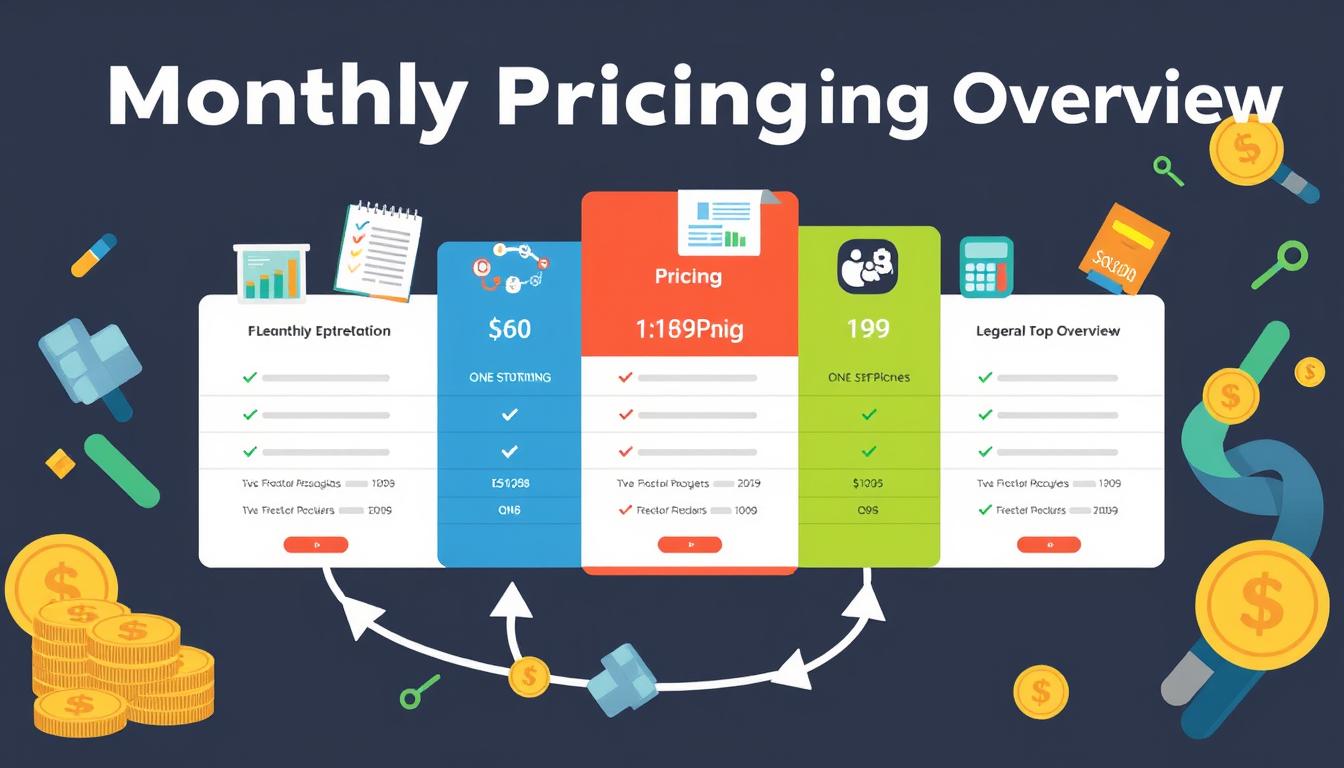
How much is quickbooks per month
Many users want to know the QuickBooks pricing for monthly costs. QuickBooks has various plans for different business needs. This lets users pick the right plan for their financial management.
What affects the QuickBooks monthly cost includes the QuickBooks edition, payment frequency, and extra features. This guide will explain the details of these plans. It will help you understand the costs of using QuickBooks for your business.

How does quickbooks work
QuickBooks is a key accounting software made by Intuit. It helps businesses manage their finances well. It works on a cloud-based platform, so users can access their financial data from anywhere.
This software makes tasks like bookkeeping, invoicing, and financial reporting easier. In this article, we’ll look at QuickBooks’ main features, its users, benefits, and challenges. We aim to help you understand how it can improve your financial management.

How do you record insurance payment in quickbooks
Recording insurance payments in QuickBooks is key for good insurance accounting. It helps business owners manage their money well and keep their books right. This is vital for the health of any business.
In this guide, we’ll show you how to record insurance payments easily. We’ll use QuickBooks guides and tips from accounting experts. This way, you can keep your financial records up to date.

How do you clock in hours in quickbooks desktop
In today’s fast-paced world, tracking time well is key for good payroll management. This article will show you how to clock in hours in QuickBooks Desktop. It’s a top accounting software that makes managing tasks easier. By learning how to track time, businesses can work better and pay employees right.
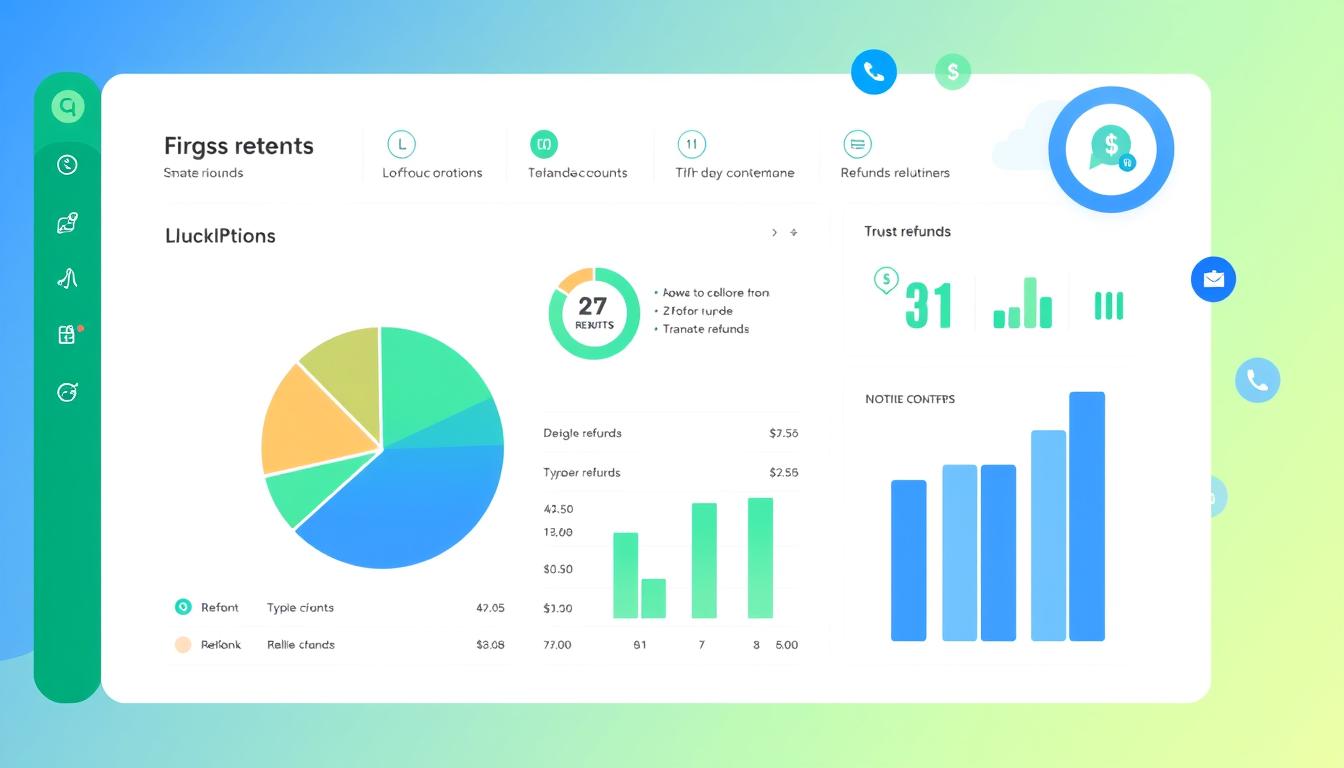
How are refunds categorized in quickbooks online
Knowing how to categorize refunds in QuickBooks Online is key for good financial management. It’s important to record refunds correctly to keep your finances clear. Businesses of all sizes can benefit from knowing how to do this right.
This knowledge helps make your financial records clear and accurate. It’s a basic step that can make a big difference.

Does quoteiq accept quickbooks online payments
Payment solutions are key in today’s business world. Many are looking into how platforms like QuoteIQ can improve their invoicing. A big question is: does QuoteIQ accept QuickBooks Online Payments? This article explores how QuoteIQ and QuickBooks Online Payments work together.
This shows how important it is to have good payment integration. It helps with cash flow and makes operations smoother. We’ll look at the benefits of using QuoteIQ with QuickBooks Online Payments. Plus, we’ll show you how to set it up.

Can you delete history under audit log quickbooks online
It’s important to know if you can delete entries from the audit log in QuickBooks Online. This is key for businesses that focus on financial accuracy and follow the rules. The audit log QuickBooks Online keeps a detailed history of changes to financial data. This ensures that all account activities are recorded clearly.
By tracking these changes, the audit log is crucial for good financial management. We will look into why the audit log matters and what happens if you try to delete its records. We’ll see how these actions impact your QuickBooks history.
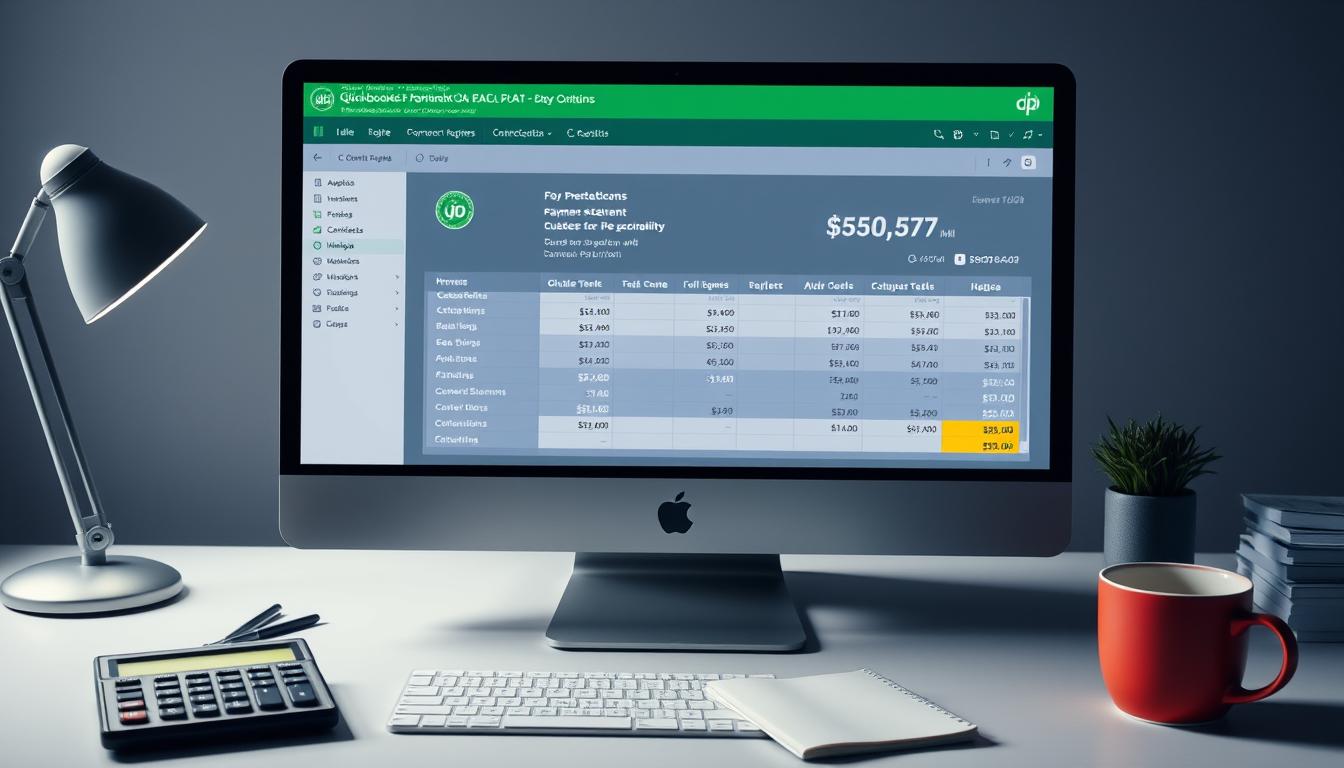
Can quickbooks recievepayment by statements rather that individual invoices
In today’s fast-paced world, businesses need quick and easy ways to handle payments. Many QuickBooks users wonder if they can pay by statements instead of invoices. This method makes accounting simpler for companies.
Using payment statements has big advantages over traditional invoices. QuickBooks helps businesses manage payments better. This article will show you how payment statements work in QuickBooks and how they can help your business.
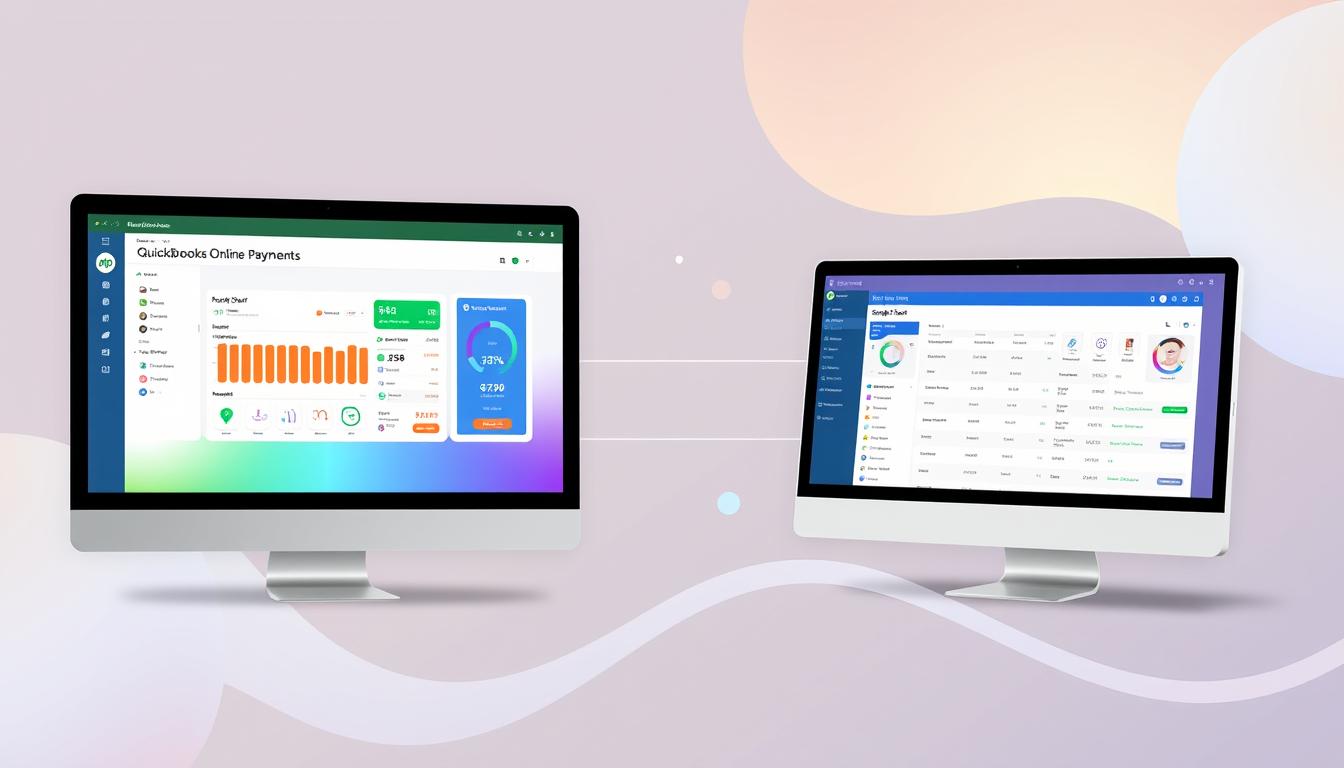
Can quickbooks online payments work with simple start
For small business owners, the question of whether QuickBooks Online Payments and QuickBooks Simple Start can work together is key. This integration is vital for managing finances effectively. It helps users handle transactions smoothly while using a basic accounting tool for solo businesses.
QuickBooks Online Payments lets users take payments online, making cash flow management easier. In this article, we explore how these two tools can boost efficiency for small businesses.